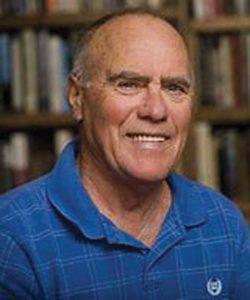By David Freeze
During my most competitive years, the 30s and 40s, I chased the latest supplement that was supposed to give me an edge. With only one exception, I never found anything taken in supplement form that mattered to my performance. What I did find was that eating to cover the basics did more to help with training, racing and general well-being.
Below are some of the vitamins and minerals that matter, and it’s my suggestion that we all should pay attention to getting them.
- Iron — Iron helps red blood cells carry oxygen to muscles for improved endurance. The highly active, especially women, can be iron deficient. Red meat, fish, raisins, tofu, lentils, white beans and spinach are all great sources of iron and active women need about double the requirement for men.
- B vitamins — Folate, thiamin, riboflavin, niacin, B6, B12, pantothenic acid and bioten. They break down carbohydrates into glucose for energy and help process fat and protein. B12 is most important because it enhances red blood cell production and DNA synthesis. Red blood cells remove carbon dioxide and carry oxygen making them essential to endurance athletes. Sources are chicken, beef, leafy greens, eggs, milk and beans.
- Vitamin D and calcium — Both work together for bone health. Calcium works to keep your bones stronger and as an anti-inflammatory but is only fully absorbed when vitamin D levels are correct. Even outdoor athletes may not get enough of vitamin D. You can find both items in dairy items like cheese, milk and yogurt and will be best absorbed in the full-fat options. Salmon is another great source of both items.
- Vitamin C — Known for fighting off sickness, vitamin C is a major immunity booster, and we can load up on it with foods like broccoli, peppers, kiwi and citrus. Most powerful is the yellow bell pepper that carries about four times the recommended daily allowance.
- Magnesium — Playing a major role in nerve and muscle function, magnesium also assists in protein, fat and carbohydrate synthesis plus electrolyte balance. Without enough magnesium, the muscles and nerves can become stressed with both cramping and involuntary spasms possible. Try for a daily mix of deep green leafy vegetables, nuts, seeds and whole grains.
- Potassium and sodium — Potassium is one of three major electrolytes and works with sodium for proper muscle contraction, heart function and communication between nerves. Both micronutrients work together to maintain proper fluid balance in the body. Losing electrolytes through sweat can lead to fatigue and cramping but potassium and sodium help restore proper hydration. Potassium sources are bananas, white potatoes, oranges, beans, salmon and milk. A baked potato with a dash of salt is a quick fix for rebalancing electrolytes after intense endurance exercise.
Most long-term exercisers begin to crave some of the foods listed above. For me, I eat most of the non-meat items listed here and no longer regularly take any supplements. I do use a basic multi-vitamin regularly.
Much of the information listed here came from my studies supplemented by a recent Outside magazine article. I found that many serious athletes gain knowledge of what food works for them, and the specific vitamins and minerals found in them. The super-supplement seldom delivers as advertised and goes by the wayside eventually. I did find some perceived success with a product called spirulina, a type of algae used by the Aztecs and grown in space by NASA astronauts. It is popular with some endurance athletes.
Racing takes a break locally for a few weeks with the next event scheduled on Jan. 2, the Bradshaw Financial Planning Resolution Run 5K. It’s a low-key event with a nominal entry fee meant to get your running/walking off to a great start for the New Year. A 9 a.m. start at The Forum nets complete results, refreshments and a quality shirt left over from a previous race. Proceeds benefit Rowan Helping Ministries.
Look for this and other events at www.salisburyrowanrunners.org.







